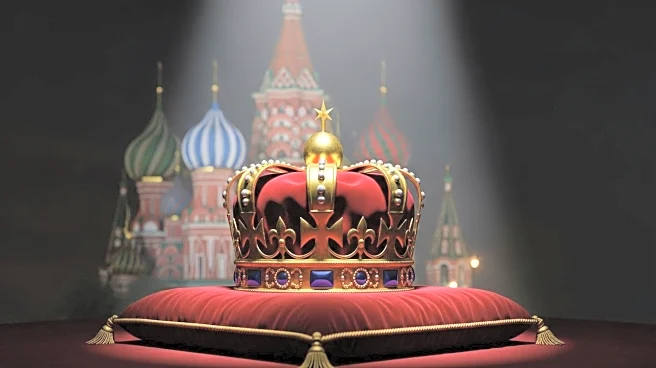What is the story about?
What's Happening?
The film 'The Wizard of the Kremlin,' directed by Olivier Assayas, premiered at the 82nd Venice Film Festival, featuring Jude Law as Vladimir Putin and Paul Dano as Vadim Baranov, a master propagandist. The film, based on Giuliano da Empoli's novel, explores the rise of Putin through the eyes of Baranov, a character inspired by Vladislav Sourkov. The narrative spans from the 1990s to the 2000s, depicting political transformations and personal struggles. Jude Law's portrayal of Putin is not intended as a direct impersonation, focusing instead on capturing the essence of the character without heavy prosthetics.
Why It's Important?
The film's portrayal of Vladimir Putin and the political dynamics within the Kremlin offers a cinematic exploration of power and propaganda. It highlights the role of media manipulation in shaping political narratives, reflecting real-world concerns about authoritarianism and the influence of political spin doctors. The film's reception at Venice underscores the global interest in stories that delve into the complexities of political leadership and the personal costs associated with wielding power.
What's Next?
Following its premiere, 'The Wizard of the Kremlin' may spark discussions on the portrayal of political figures in cinema and the ethical considerations of dramatizing real-world events. The film's release could influence public perceptions of political narratives and the role of media in shaping them. Industry reactions and audience feedback will likely shape the film's impact and its place in political cinema.
Beyond the Headlines
The film raises questions about the ethical implications of portraying living political figures and the balance between artistic expression and historical accuracy. It may contribute to ongoing debates about the responsibilities of filmmakers in representing complex political realities and the potential influence of such portrayals on public opinion.















